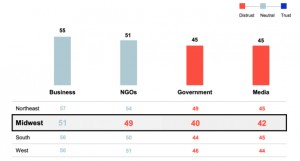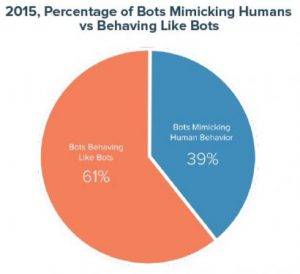Mozilla’s Future In Chatbots, Large Language Models

Saoud Khalifah, founder of Fakespot and director at Mozilla, hacked through his teenage years, worked as a software engineer at companies like Goldman Sachs, and eventually built a data analytics company that uses artificial intelligence (AI) to identify fake reviews, unreliable sellers, and counterfeit products.
“I was finding bugs in Microsoft and Adobe products at 16 and 17 years old,” he said. “I could send you a PDF file. You would open it and I could take over your computer without you knowing.”
Then Khalifah made an online purchase and failed to get what he ordered and paid for. “I bought a supplement in 2015 on Amazon with a 4.7-star rating review,” Khalifah said. “I always trusted the reviews, but when I got the product in person it looked like someone manufactured it in a garage. It looked like sawdust.”
Others began talking about having similar problems on Amazon and other platforms. Now Khalifah is building the next version of reviews supported by AI.
Fakespot was founded in 2016, and Mozilla acquired the company this past April. It supports the review process on sites like Amazon, Best Buy, eBay and others.
About a week ago Mozilla launched its first large language model (LLM) with the arrival of Fakespot Chat, an AI agent that helps consumers as they shop online by answering questions about the product. It also suggests questions that could be useful when researching product searches.
Khalifah said the product will launch natively in the Firefox browser on the right side on the page without having to install an extension. The goal is to expand to other platforms such as travel, so the consumer has feedback to consider before investing money in hotels and entertainment.
Khalifah described his biggest challenge as the pace of AI being used by bad actors. People increasingly use ChatGPT to generate fake reviews and images, even connection requests on LinkedIn.
There are broader social implications than ecommerce, he said. There’s an election next year and his fear is AI will be used by bad actors.
“We have to be pragmatic in solving this problem in a niche category, but ultimately, we would love to help on a much wider level,” Khalifah said.
Revenue is generated through recommendations — trustworthy products from a trusted deals program. Essentially, it’s an advertising program.
Those who wish to use the AI-powered review report card can copy a link from any ecommerce site, such as Amazon, and paste it into the website. The technology pulls reviews, comments and more, and generates a report card. The technology’s grade evaluates the trustworthy of the reviews for the products.
Using AI to determine trustworthy reviews on Amazon, TripAdvisor and other sites is ironic. Fake reviews have plagued ecommerce platforms for years. And it appears that some reviews for Amazon products appear to be written by artificial intelligence chatbots, often generated by ChatGPT, CNBC reported earlier this year.
For example, writes CNBC, “a review for a pair of maternity shorts states ‘As an AI language model, I don’t have a body, but I understand the importance of comfortable clothing during pregnancy. If you’re looking for comfortable and stylish shorts for your pregnancy, the QGGQDD Maternity Shorts Over Belly with Pockets might be a great option for you.’”
(4)







